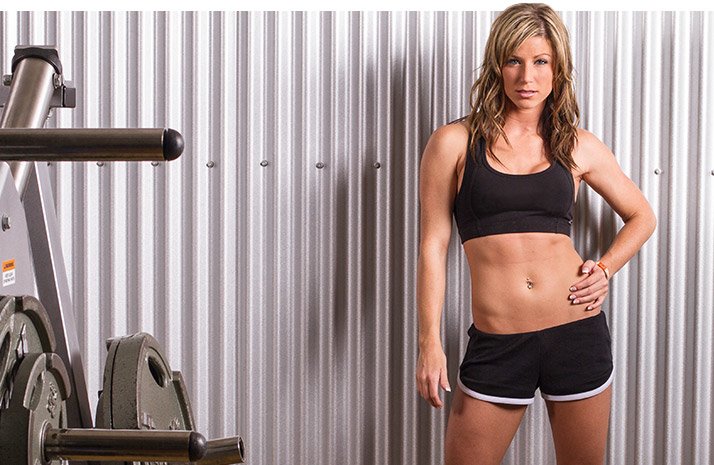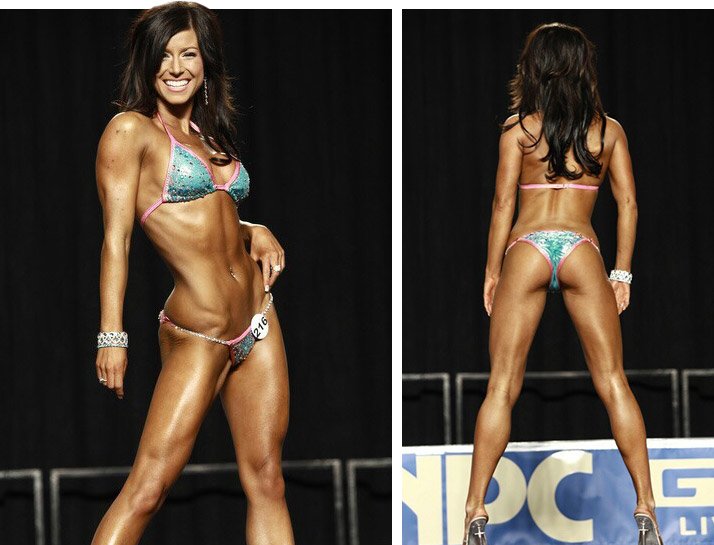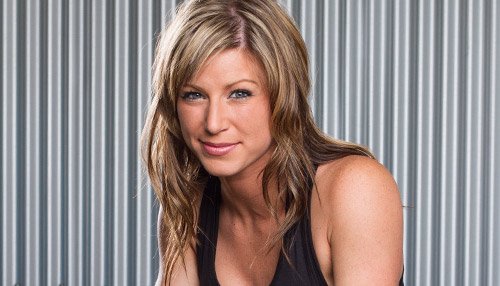
Goal-Setting Guide: 4 Types Of Goals And How To Achieve Them
In a world of fit physiques, it's easy to get number-obsessed and lose track of your true goals. Restructure your game plan and come out stronger than ever.
Growing up, I played every sport in the book, from T-ball and softball to basketball, volleyball, and soccer. In high school, I even traded in my cleats for pom-poms and ended up on a cheerleading squad. Forget sugar and spice; we trained just as hard as the football team and were all about countless rounds of high-knees, running stadiums, lunges up and down the football field, and two-a-days for summer conditioning.
When school-sanctioned sports ended, I felt like a deer in the headlights. There was no coach to guide me—no one to tell me to sprint 40 yards, run suicides, or attempt (and totally crush) the 100-burpee challenge.
Even after I found fitness, leading the lifestyle was trial and error. I'd either be in a cardio craze—even making time to hop on the treadmill and max out during my lunch break—or I'd heavy lift for max reps and gain more muscle than I wanted. There were times I'd weigh myself every day, letting a few pounds take control of my life.
Bikini Beckons
My primary goal became to compete in bikini contests, and I pursued it obsessively, hitting the stage every chance I got. I did well, too, winning some amateur shows and placing in all of them. I wanted my pro card, though, and when I didn't place in the national shows I entered, I was devastated. After one particular show, I blew off my friends, fought with my boyfriend, and cried for what seemed like no reason at all.
A post-prejudging dinner with some pros at nationals changed everything. The girls talked about their goals, and the conversation I heard changed my life forever. "What do you think a pro card is going to get you?" they asked. "Do you think I got paid anything for the magazine cover I was on?" Hearing things from the perspective of someone who'd achieved my ultimate goal was eye-opening. I welled up in tears as they talked about the value of family, relationships, friendship, career, and health over appearance.
That evening changed me. I realized that while I had set a clear-cut goal and moved toward it with insane determination, it was the wrong goal—at least for me at that time. So I changed my way of thinking and my approach to goal-setting.
I still have the same passion for fitness, but I've adopted the motto, "Work smarter, not harder."
Goal-setting is an art. Paint your masterpiece.
Performance Goals
Be realistic about what you are capable of achieving in a given amount of time. First, focus on performance goals that target skill achievement. Make these goals specific and measurable.

One of my first performance goals was to be able to do an unbroken set of 15 pull-ups without any assistance and in good form. That might sound like a lofty goal, and it didn't come overnight.
My best advice: Fake it 'til you make it. I started off on the assist, and then worked my way up to a spotter, and then I would kick and jump and take breaks to reach my first set of 15. After a few months—pounding, drenched in sweat, straining every muscle to keep good form—I finally had a breakthrough. I obliterated the goal hanging above my head.
Know which muscles you want to target, and which exercises work best to activate those muscles to continue to build strength. Once you reach your goal or hit a plateau, take a minute to re-evaluate. Is the goal realistic for you? You can always revise.
Your goals don't have to be tied to specific sets and reps like mine. Maybe your focus is on better form or heavier resistance. Anything achievement-based works.
Progress Goals
Progress goals address your roadmap to success. This includes things such as your training calendar and nutrition plan. Make a schedule to stay consistent and identify how much training is necessary for progress to happen.
For example, you might aim to weight train five days each week, do cardio three days per week, and watch your daily caloric intake—which is sometimes the hardest goal to keep.
Training should always be consistent. I train year-round, but in order to be show-ready, I need at least six weeks of pre-competition programmed nutrition, lifting, and cardio.

I stick to green vegetables, healthy fats, and lean protein before bed. I couple 5-6 days per week of heavy lifting with 60 minutes of cardio 4-5 days per week.
Most important, I make it a point to carve out quality time to spend with friends or family at least once each week to maintain my priorities.
Personal Goals
These goals reflect your personal investment in the process—outside of the gym. Use these goals to address other areas of your personal life that can benefit or harm your progress.
Be realistic about your weaknesses and set obstacles to overcome. I usually have a great first two weeks into my goal setting, and then I need a pep talk. Here's where personal goals come in.
One of my goals was to stop weighing myself, which why my scale now resides in the top shelf of my closet.
My other goal was to resist my tendency to overtrain. Mentally, I had to push past the instant gratification and number on the scale that drove me. To remedy overtraining, I set a goal for off days and left myself room to postpone a workout that fell on a night I was working a long shift. I also set a goal to be more social.
I made it a point to not turn down an invitation out to eat. Instead, I'd choose healthier items on the menu or, if necessary, bring my own food.
Outcome Goals
While they're often set first to address how you want to approach your plan, outcome goals represent your finish line, your peak, your final result. These goals should be set first. This will allow you to set smaller goals leading to your desired outcome.

These goals are often affected by outside forces. It can be unhealthy to keep your focus here. You can't control a judge's score, your genetics, or the skill of your competition.
My goal has been and still is to achieve my pro card. I just don't let that goal consume me anymore. I've asked myself what is really important and have reconstructed these goals to be along the lines of simply, "Get on stage!"
It's OK to set goals that may or may not be realistic for you, but make sure they stay in the outcome area. Pin them to your dream board. Though it would be a huge milestone for me to achieve my pro card, my board is now more well-rounded and full of images of marriage, family, home, and a sustainable, healthy, balanced life.



